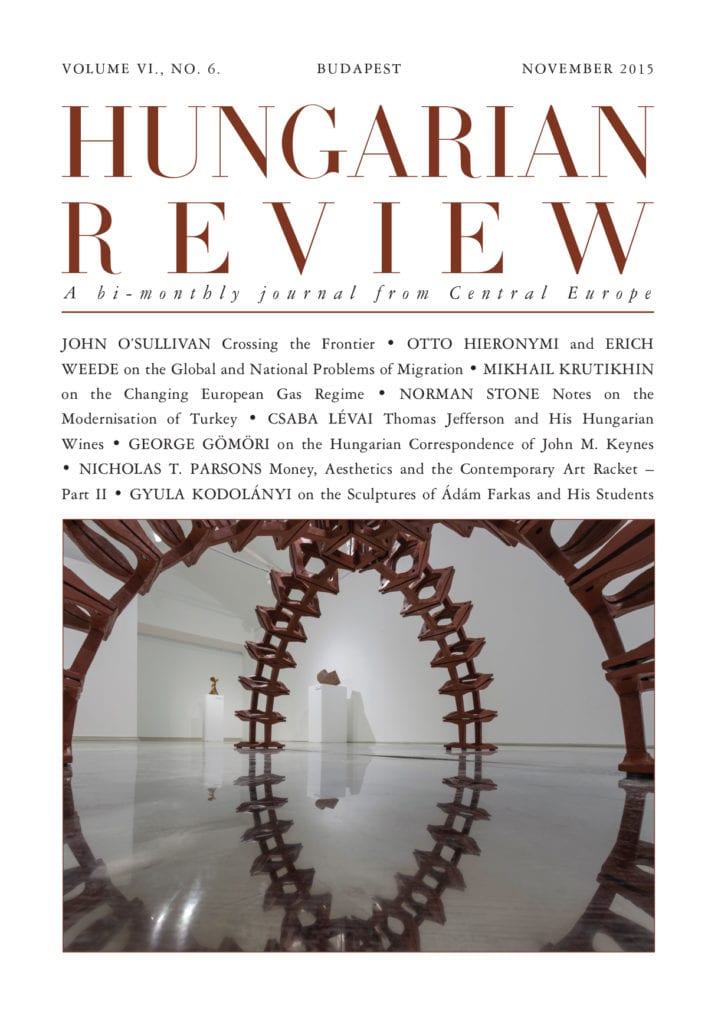CROSSING THE FRONTIER
For almost a century “crossing the frontier” has been an almost omnipresent metaphor in poetic and intellectual life. That should not perhaps astonish us in the aftermath of a war

For almost a century “crossing the frontier” has been an almost omnipresent metaphor in poetic and intellectual life. That should not perhaps astonish us in the aftermath of a war
1. IS IMMIGRATION A PROBLEM OR AN OPPORTUNITY? Although the present study frequently refers to Germany, I believe that my conclusions apply more generally to ageing European societies and to
Part I BEWARE OF THE “TERRIBLE SIMPLIFICATEURS” In the late 19th century the Swiss historian Jakob Burckhardt warned against “these terrible simplificateurs who one day will descend upon our old
Europe’s dependency on Russian energy is sometimes presented as a largely unalterable fact of life when in reality there is much that Europeans can do to reduce this dependency and
With Nobel Prize winners and businessmen all over the world, with a NATO army and locally produced aircraft, Turkey is easily the most successful Moslem country. But the problems begin
BASIC FRAMEWORK AND SPECIAL PROVISIONS OF THE NEW SYSTEM The Hungarian constitutional framework has guaranteed suffrage since 1990. In alignment with the previous constitution, the new Fundamental Law expressly provides
Looking Back on the Regime Change of 1990 – from 1996 Keeping the third part of my Hungarian Review interview series on the governmental work of 1990 on the back
Memoirs of a Hungarian Childhood Part IV (3) It is instructive to compare Hitler and Churchill as boys in school. Churchill at St George’s School, Ascot (1884). Headmaster’s remarks. General
When in the Michaelmas Term of 1911–12 Ferenc Békássy began his studies at King’s College, Cambridge, he was not long in earning the attention of John Maynard Keynes, a Fellow
Thomas Jefferson and His Hungarian Wines: Study of an Attitude1 Thomas Jefferson was an ardent patron of American viticulture. As an admirer of any kind of good quality wine, he
Another problematic aspect of the contemporary art scene is the role of the state in promoting culture, which inevitably includes a good deal of junk culture. Much questionable artistic production
In 1975, I co-edited a book entitled Pesnici Vojvodine (The Poets of Vojvodina). The purpose of the book was to present poems written in the languages spoken in Vojvodina: Serbo-Croatian,
Rudderless (Kormányeltörésben, 1971) is one of the truly great Hungarian poems written by my generation. Yet, it is hardly known by the wider public either in Hungary or internationally. István
It behoves the reviewer – and any author of non-fiction for that matter – to disclose her or his preconceived notions, reveal whatever conscious biases she or he may harbour.
MR CSATÁRI I waited eleven years for my first visa back to Hungary. To be more precise, for a permit to stay for two weeks, supplied on a purpose-designed form.
It is difficult to say anything new about the work of Ádám Farkas. His evolving oeuvre has been followed for over four decades by sharp-eyed artists and sharp- witted critics.
Dear Gyula, For some time I have been meaning to write in order to commend you on the extraordinarily fine quality of the Hungarian Review. In issue after issue it brilliantly
ISTVÁN DOMONKOS was born in 1940 in Zmajevo (in Hungarian: Ókér). He studied in Subotica (Szabadka) and Novi Sad (Újvidék), worked as a jazz musician, and was an outstanding member